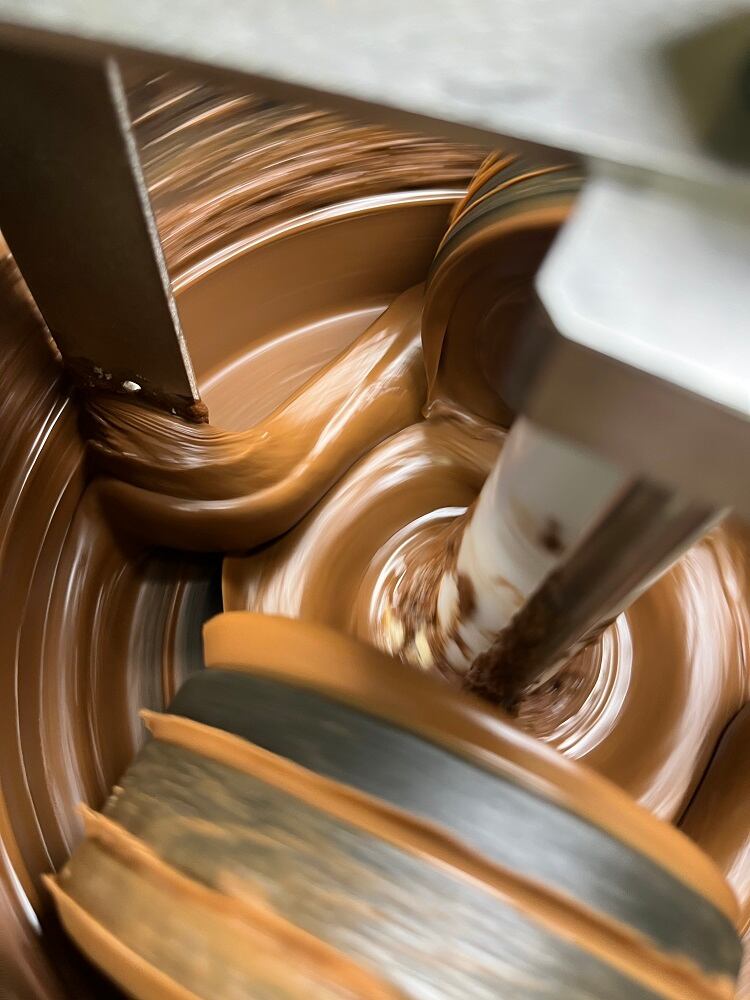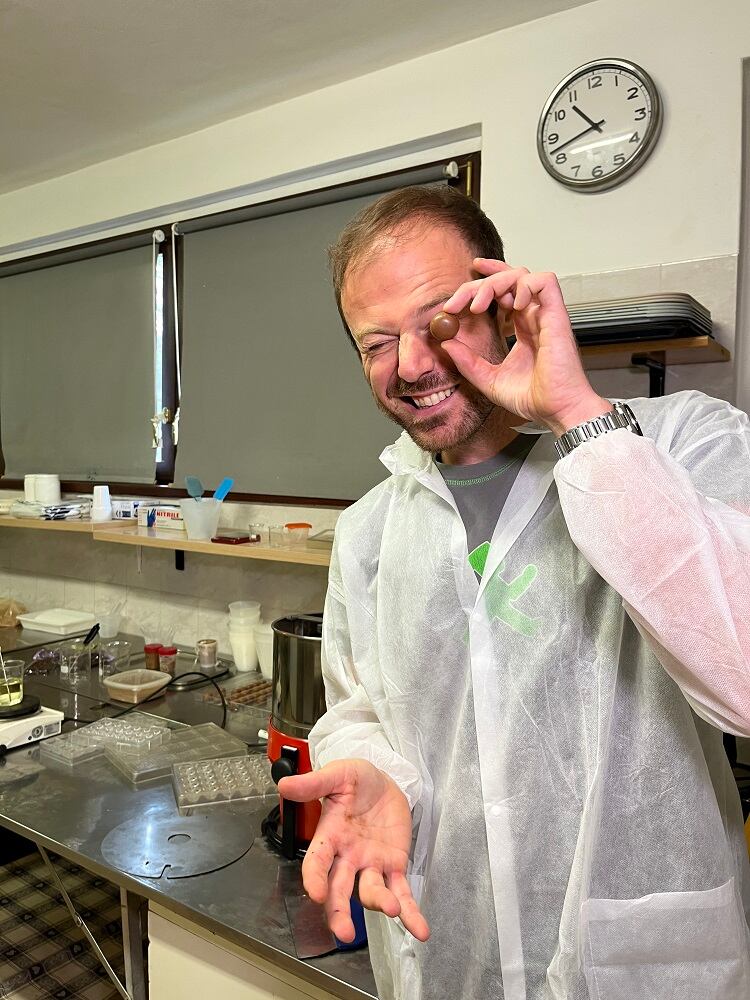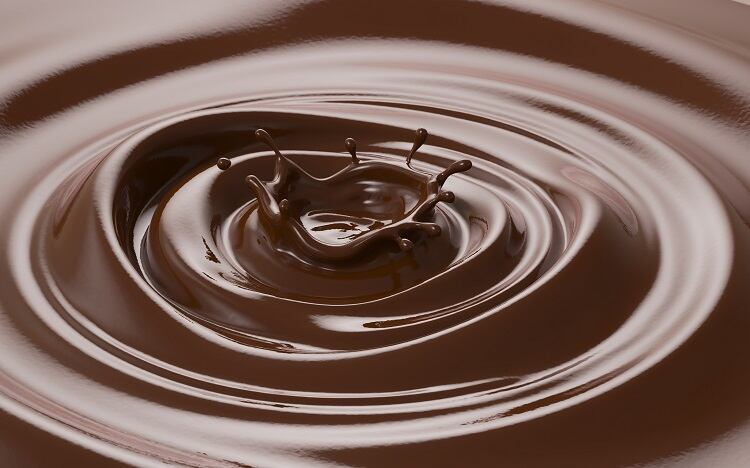After working in various multinational corporations, four innovators, Massimo Sabatini, Giuseppe D'Alessandro, Riccardo Bottiroli, and Massimo Brochetta, came together and the result is Foreverland.
Led by the desire to “positively impact the world”, Riccardo Bottiroli, Chief Technology Officer (CTO) and Co-Founder of Foreverland and PhD Food scientist collaborating with Wageningen University (WUR), told FoodNavigator the foursome came from their perspective careers to change the cocoa industry.
Teaming up to reimagine chocolate
Massimo Sabatini left the oil and gas sector after learning the food industry was the second-largest contributor to carbon dioxide (CO2) emissions. The discovery motivated him to seek out new product development (NPD) solutions alongside his friend D'Alessandro, a marketing expert with experience in the chocolate industry.
D'Alessandro, Chief Marketing Officer (CMO) of Foreverland, shared the project's starting point: "We began thinking about an alternative to chocolate, and carob emerged as an interesting possibility. I remember my grandparents in Puglia consuming it, calling it—the chocolate of the poor—due to its resemblance in terms of colour and consistency."

The team was completed with Bottiroli, a researcher at Wageningen University with a background in the food sector, and Brochetta, his friend and collaborator on food product development.
“From that point on, the four shared a common mission: to realise the next generation of chocolate in a sustainable and healthy way without cocoa,” Bottiroli said. Taking part in the FoodSeed acceleration programme has been crucial for the brand, as it focuses on food technology with an international vision and spirit. Its received support from Eatable Adventure, a partner in the startup landscape, to lay the groundwork for ambitious goals.
Overcoming the darker side of chocolate
Spotting the often-hidden dark side of chocolate production was at the heart of Foreverland’s mission. “Chocolate, one of the world's most beloved treats, often conceals a darker side to its production,” Bottiroli said.
The cocoa industry is responsible for considerable deforestation in protected areas in Ivory Coast and Ghana, sources of two-thirds of the world's cocoa. “Additionally, over 1.5 million children are exploited in its harvesting,” Bottiroli shares.
Chocolate also ranks as the top water-intensive ingredient, Foreverland has found, requiring approximately 24,000 litres of water per kilogram, while contributing significantly to carbon emissions, ranking second among CO2 emitters, primarily due to logistics and land exploitation.
Traditional chocolate also faces two economic challenges, Bottiroli said. The industry has seen a price increase of more than 60% in 2023 compared to 2022 and there has been the potential disappearance of 90% of Ghana and Ivory Coast plantations by 2050 due to climate change.
"Our mission is to free the world from the issues of traditional chocolate," said Massimo Sabatini, CEO of Foreverland. The newly launched brand focuses on forgotten crops, upcycled food and locally sourced ingredients. It always strives to “go beyond sustainability” by considering the wellbeing of people in its value proposition, creating products that are naturally vegan, free from top nine allergens, with a clean label and appealing taste. “We do believe that for being future-proofing, chocolate should be better for the planet and for the people,” says Bottiroli.
Producing a new type of chocolate
Foreverland’s cocoa-free chocolate products, which they’ve called Freecao contains carob as the main ingredient, together with a blend of different grains, sugar and label-friendly vegetable fats, equating to a palm-free and no transaturated content.

By the end of 2023, the brand states its multi-use variable gravity platform (MVP) for its Freecao spread will be ready. The product without cacao and free from allergens, includes hazelnut paste, but with comparable sensory properties. Bottiroli explained the innovation behind Freecao: "We've used a combination of traditional and patented innovative technologies to achieve the taste and texture of chocolate without cocoa."
Other start-ups working in the cocoa-free chocolate space include Germany-based Planet A Foods and UK-based WNWN Food Labs.
Launched onto the Australian market, Foreverland’s Freecao M*lk is identical to traditional chocolate in terms of taste, appearance and texture, the brand states. It is suitable for use in industrial facilities and pastry, seamlessly replacing chocolate 1:1 without the need for modifications to equipment or techniques.
Foreverland’s chocolate production does not involve precision fermentation or cellular agriculture methods. Its technological platform includes traditional fermentation alongside other existing processing label-friendly technologies that it meticulously adapts to raw materials, enabling it to create products that do not require regulatory approval before commercialisation.
The chocolate’s sustainability profile comprises 90% less water, using local ingredients with resistance to drought and 80% less CO2 emissions, focusing on local production, no pesticides and no deforestation. Nutrition-wise, their profile consists of allergen free products that are free from gluten, caffeine and top nine allergen free and vegan. Along with being nichel free, the brand states it chocolate is clean label, with no artificial ingredients and up to 50% less added sugar.

